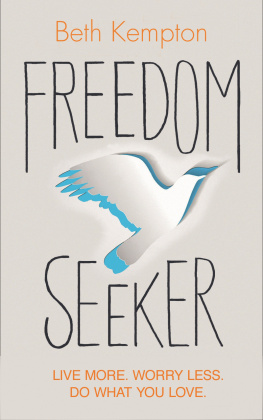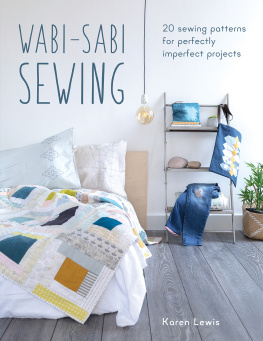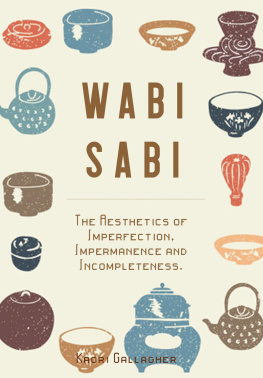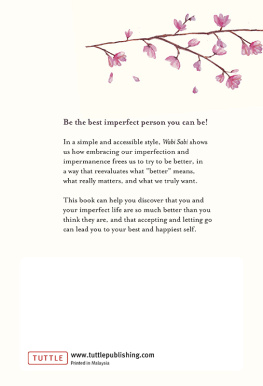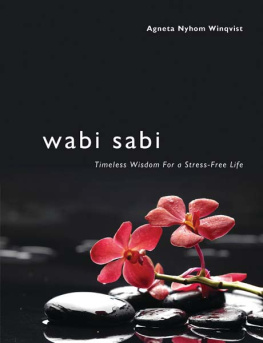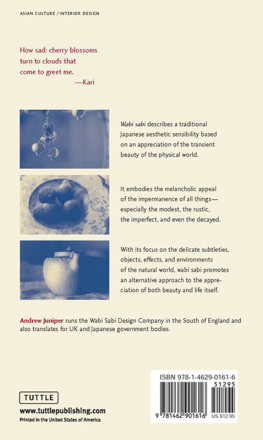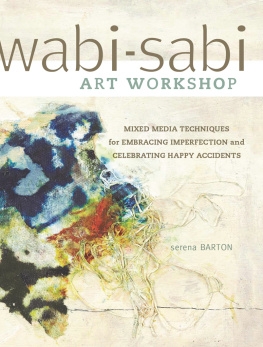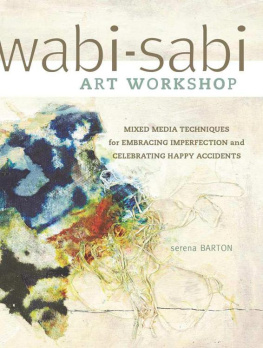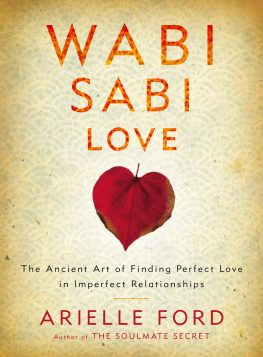FREEDOM SEEKER:
Live more. Worry less. Do what you love.
Published by Piatkus
ISBN: 978-0-349-42099-8
Copyright 2018 Beth Kempton
The moral right of the author has been asserted.
All rights reserved. No part of this publication may be reproduced, stored in a retrieval system, or transmitted, in any form or by any means, without the prior permission in writing of the publisher.
The publisher is not responsible for websites (or their content) that are not owned by the publisher.
Piatkus
Little, Brown Book Group
Carmelite House
50 Victoria Embankment
London EC4Y 0DZ
www.littlebrown.co.uk
www.hachette.co.uk
To my family.
I love you just the way you are.
Japanese personal names have been written in standard English name order for ease of reference (first name followed by surname), except for historical figures most commonly known by the traditional Japanese name order (family name first), such as Matsuo Bash (family name of Matsuo).
The modified Hepburn system has been used to romanise the Japanese language. Macrons have been used to indicate long vowels; for example, for an extended uu. This includes place names, even if they are familiarly known without the macrons, such as Tky and Kyt.
When referencing people, the suffix -san is sometimes used. This is a polite way to say Mr, Mrs or Ms. When the suffix -sensei is used, this refers to a teacher or professor.
CONTENTS
About the author

Foreword by Hidetoshi Nakata

Introduction

Chapter 1: Origins, characteristics and relevance of wabi sabi today

Chapter 2: Simplifying and beautifying

Chapter 3: Living with nature

Chapter 4: Acceptance and letting go

Chapter 5: Reframing failure

Chapter 6: Nurturing relationships

Chapter 7: Enjoying the career journey

Chapter 8: Cherishing the moments

Afterword: Tying it all together

Acknowledgements

Endnotes

Notes on visiting Japan

Bibliography

Index

B eth Kempton has been inhaling the magic and mystery of Japan and has been influenced by its philosophy and aesthetics for over two decades. With a masters degree in Japanese, Beth has spent many years living and working in Japan, which she considers her second home. Over the years, she has taken lessons in Japanese papermaking, flower arranging, pottery, noren making, calligraphy, the tea ceremony and weaving. Collectively, these experiences have led to a deep love of the country and a rare understanding of cultural and linguistic nuances.
Beth previously trained in TV presenter skills at NTV in Tky and, many moons ago, hosted her own TV show on Yamagata Cable Television in the north of the country. She has written about Japan and Oriental philosophy in various publications including Wanderlust, Yoga Magazine and Where Women Create.
Beth is also an award-winning entrepreneur and self-help author, and co-founder of the online design magazine MOY (which is Japanese for pattern). Together with her husband, Mr K, she runs dowhatyouloveforlife.com , makeartthatsells.com and makeitindesign.com all of which offer tools, resources and online courses for living an inspired life. Beth also co-leads an online members club for soulful women entrepreneurs at hellosoulhellobusiness.com , and mentors individuals through times of major life and career change (see bethkempton.com for details).
Named a Rising Star by Spirit & Destiny magazine, Beth was also nominated Kindred Spirit Magazine Mind Body Spirit Blogger of the Year 2017 and her blog was recently named one of the best happiness blogs on the planet. Her first book, Freedom Seeker: Live More. Worry Less. Do What You Love ., was published by Hay House in 2017. She loves leading workshops and speaking live, and is on the faculty of 1440 Multiversity in California.
Beth describes herself as a wanderer, an adventurer and a seeker of beauty, with a slight obsession with chocolate and Japanese stationery. Mother of two adorable girls, she lives a slow-ish life on the south coast of England, and loves nothing more than a dose of shinrin-yoku (forest bathing) and a picnic with her young family. You can take a peek at her perfectly imperfect life on Instagram @bethkempton .
Find Beth here:
www.bethkempton.com / www.dowhatyouloveforlife.com
www.facebook.com/dowhatyoulovexx
Instagram @bethkempton
Twitter @dowhatyoulovexx
Podcast: www.bethkempton.com/podcast
A t the age of twenty-one, I left Japan to make my way in the big, wide world. The eight years I spent playing in the Italian League Serie A and the English Premier League were, as a professional footballer, the most important in my sporting career. As a person, the experience of living abroad showed me how stepping outside the familiar can really open our eyes and minds.
During those years, I worked hard to learn first Italian and then English. The more I learned, the more I discovered how language offers a window into other cultures, and can be a doorway to lifelong friendships.
After retiring from football following the 2006 FIFA World Cup, I spent the next few years travelling all over the world, meeting people from all walks of life. Everywhere I went, people would tell me that they were interested in Japan. They asked me all sorts of questions, many of which I could not answer. And I realised then, that even though I was Japanese, there was a depth and richness to my own culture that I had not yet truly appreciated. I wanted to understand what it was that was so appealing to people worldwide, so I made the decision to go back to Japan and find out for myself.
I carried with me the question, What is culture? Food culture, fashion culture, Japanese culture I wanted to understand this idea more. When people use the term culture they refer to a certain lifestyle followed by a number of people over a period of time something we create by the way we live. So I decided to visit people instead of places.
Next page

